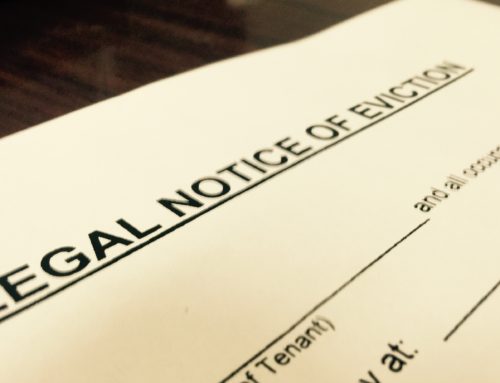 Evictions in San Francisco can be costly and time consuming. More importantly, there is no guarantee of success for either side. To avoid the complicated legal system in San Francisco, many landlords and tenants are choosing to voluntarily terminate a lease by a contract known as a Buy-Out Agreement.
Evictions in San Francisco can be costly and time consuming. More importantly, there is no guarantee of success for either side. To avoid the complicated legal system in San Francisco, many landlords and tenants are choosing to voluntarily terminate a lease by a contract known as a Buy-Out Agreement.
A tenant Buy-Out Agreement usually arises after a landlord has approached a tenant about terminating their lease early. The landlord usually wants to do this in order to sell the property, or move in a relative. However, San Francisco law does not allow the landlord to simply evict a lawful tenant with a lease agreement. Instead, the landlord must either wait for the tenant to move, or evict the tenant through a process known as an Unlawful detainer. In order to avoid this, the landlord will offer the tenant financial compensation in exchange for the tenant to move out. In other words, the landlord will buy out the remaining terms of the lease, and the tenant will move.
These contracts are completely optional from the point of view of the tenant. Tenants should be aware that even if a landlord was to successfully evict a tenant in order for a relative to move in, the landlord would have to pay relocation costs to the tenant. The amount of relocation benefits given to the tenant depends on the age of the tenant, if there are children living on the property, if any tenant is disabled, and how many tenants live on the property. With this in mind, it is reasonable for a landlord to pay anywhere from $10,000 – $25,000 in relocation benefits as required by San Francisco law.
In addition, for any tenant to move to a new property, they will need to place a security deposit, and possible first and last months rent on the property. In consideration of this, many tenants will ask for this amount to be included in the Buy-Out Agreement, along with additional compensation due to the inconvenience of moving.
A landlord-tenant Buy-Out Agreement should be in writing, so that there is a clear understanding of the terms. In addition, landlords often supply have of the financial compensation upon signing the contract, and the other half when the tenant moves. Finally, it is recommended that any agreement includes a mutual release, so that neither party can bring suit against the other after the move out has occurred.
These agreements can be somewhat complicated, and it is highly recommended that you seek the counsel of an attorney before proceeding with a Tenant Buy Out Agreement. Contact Jones & Devoy for a free consultation to discuss if a Tenant Buy Out Agreement in the Bay Area is right for your situation.


